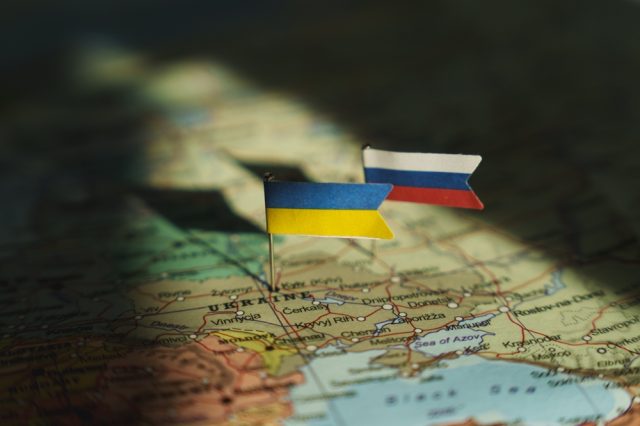
Putin’s False Concession Puts All of Europe in Difficulty
The hypothesis of Ukraine joining the European Union with Vladimir Putin’s approval sounds like a mockery. The Russian leader would be ready to accept this scenario as part of a truce agreement, but behind this apparent concession lies a much more complex and insidious strategy.
If Putin were really willing to accept Ukraine’s entry into the EU, he would certainly not do so because he recognizes Kiev’s right to a European future, but rather because he considers the European Union an economic giant without military muscle. Russia does not fear an EU incapable of defending itself autonomously and fragmented by internal divisions. In other words, this concession is not a sign of weakness, but a strategic calculation that could backfire on Europe itself.
The context in which this proposal emerges is already significant in itself. The negotiations between the United States and Russia in Riyadh mark an important turning point: after years of isolation, Putin has returned to being a legitimate interlocutor on the diplomatic scene. In this scenario, Europe appears to be relegated to the margins, unable to determine the course of events. The fact that the Americans have started a direct dialogue with Moscow, bypassing Kiev and the European institutions, is in itself a worrying signal.
The idea that Ukraine can join the European Union without adequate military protection is a dangerous illusion. The recent Paris conference, convened by Macron, showed how divided Europe is on the issue of security. While the United Kingdom has expressed willingness to send troops to ensure a truce, Germany has been reluctant. This contrast shows that the EU does not have a unified strategy to deal with the Russian threat and that Putin is well aware of these fragilities.
In addition to geopolitical issues, Ukraine’s accession to the EU would represent a huge economic burden. The war-torn country would require massive reconstruction investments and would become the poorest member of the Union, benefiting from massive transfers of resources. This would weigh on the already fragile economies of countries such as Italy, Spain and Portugal, as well as create tensions with French farmers and Eastern European nations. The result would be further growth of Euroscepticism and years of political stalemate.
Another key element is the change in American policy under the Trump presidency. The US administration sees the defense of Europe as a responsibility that the EU should shoulder alone. Vice President JD Vance’s visit to the Munich Security Conference confirmed this line: Washington does not intend to guarantee unconditional protection and expects Europeans to invest more in their own security. This change of perspective could mark the end of the transatlantic alliance as we know it. If Europe is not able to strengthen itself militarily and act more cohesively, it risks being exposed to new Russian aggression without the traditional American protective umbrella.
Putin’s apparent openness to Ukraine’s entry into the EU is not a concession, but a tactical move that could further weaken Europe. The Union is facing a crucial choice: strengthen its defense capacity and act with greater unity or remain a victim of its divisions, accepting growing irrelevance on the global stage. The decision to welcome Ukraine must be accompanied by a clear and ambitious strategy, capable of transforming a potential burden into an opportunity for the entire continent to relaunch itself. Only a stronger Europe, economically and militarily, will be able to face the challenges of the future without being exploited by Moscow and without depending on the changing policies of the United States. The time to decide is now and the more time passes, the less room for dialogue there will be between the parties involved. The world powers involved in the agreements will have to accept compromises relative to the advantages feared for them.



 Subscribe
Subscribe